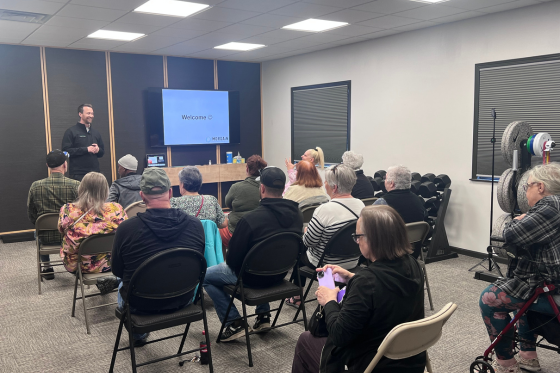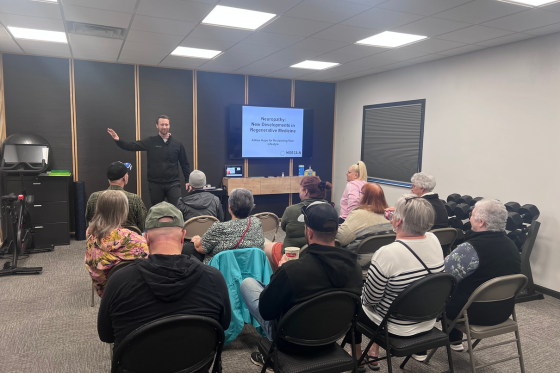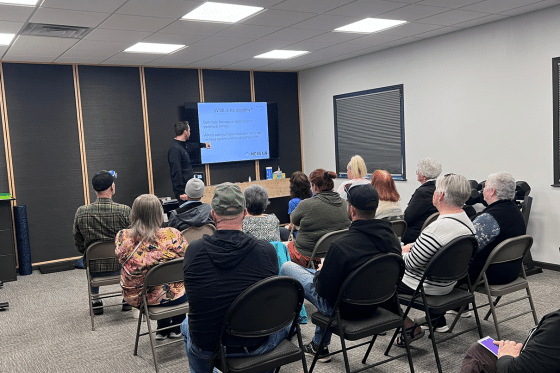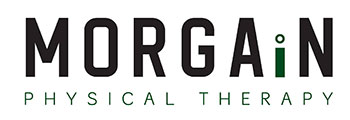Understanding Neuropathy: What It Means and Why It Matters
We recently hosted one of our most engaging community events here at MORGAiN Physical Therapy — a Neuropathy Educational Workshop — where we had the chance to connect with dozens of people seeking to understand more about nerve-related discomfort, tingling, and mobility challenges.
If you were one of the many who joined us, thank you!
If you missed it, don’t worry — this blog covers what neuropathy actually is, why it affects so many people 45+, and what steps you can take to support better movement and daily comfort.
We’ve also included a few photos from the workshop and invite you to join us for future events where we cover topics that matter to your health and independence.
What Does Neuropathy Mean?
Neuropathy refers to any dysfunction or damage to the body’s peripheral nerves — the ones responsible for sending signals between the brain, spinal cord, and the rest of the body. When these nerves are impaired, it can lead to:
- Numbness or tingling (often in the hands or feet)
- Unusual sensations like burning or “pins and needles”
- Weakness or instability while walking
- Muscle tightness or cramping
- Increased sensitivity to touch
The impact of neuropathy is more than physical. It can affect how people move, how safe they feel, and how confidently they live.
Common Causes of Neuropathy
Neuropathy can stem from a variety of sources, including:
1. Diabetes
Diabetic neuropathy is one of the most common types, caused by prolonged high blood sugar that damages nerves — especially in the lower limbs.
2. Injury or Repetitive Use
Falls, awkward twisting, or overuse can lead to nerve irritation or compression, especially in areas like the spine or shoulders.
3. Autoimmune Conditions
Diseases such as lupus or rheumatoid arthritis can affect nerve health by causing inflammation.
4. Nutrient Deficiency
Low levels of vitamins like B12 or folate can interfere with nerve function.
5. Infections or Side Effects
Certain infections or treatments — like chemotherapy — may also affect the nervous system.
Why Neuropathy Is More Than Just Numbness
At our recent workshop, many attendees shared how surprised they were to learn that their difficulty with balance, fear of falling, or even trouble sleeping were tied to underlying nerve issues.
The subtle signs of neuropathy can often go unnoticed or misunderstood, such as:
- Needing to look at your feet while walking to stay steady
- Feeling a buzzing sensation when sitting or lying down
- Difficulty feeling temperature differences
- A lack of confidence when walking on uneven surfaces or in the dark
What starts as a minor annoyance can quickly become a major disruption to daily routines.
Our Workshop in Photos
We were thrilled to welcome so many guests to our most recent Neuropathy Workshop — the room was filled with curiosity, shared experiences, and real conversations around mobility and independence.
📸 Here are a few snapshots from the day:



Whether this was your first event with us or you’ve been to several, the energy and participation from the local community was truly inspiring.
Stay tuned — more workshops and education events are on the horizon!
What We Covered
During the event, our team shared insights into:
- How nerve signals impact balance and comfort
- Everyday habits that may worsen neuropathy-like symptoms
- Simple movement techniques that promote healthy circulation
- The difference between muscle-related discomfort and nerve-related irritation
- How to recognize the early warning signs before things escalate
We emphasized one key idea: You’re not alone, and there’s more that can be done than you may have been told.
What Can Be Done?
While there is no one-size-fits-all fix, what we know for certain is that taking action early can make a big difference in managing and adapting to neuropathy-related changes.
That’s why we encourage anyone feeling the lasting effects of neuropathy — even if you’ve already attended the workshop — to take the next step:
👉 Book a FREE Discovery Visit at MORGAiN Physical Therapy
This is your opportunity to meet one-on-one with a movement specialist who will:
- Take the time to listen to your story and goals
- Help identify what’s contributing to your discomfort or instability
- Offer guidance on safe and practical steps forward — without pressure, pills, or guesswork
No cost. No obligation. Just honest support from a clinic that cares.
🔗 Book your Discovery Visit today:
https://morgainphysicaltherapy.com/free-discovery-visit/
Who We Help at MORGAiN Physical Therapy
Most people who walk through our doors have already tried several options — from resting more to searching for answers online — and still feel stuck.
Our patients are often:
- Adults 45+ wanting to stay active and independent
- People dealing with tingling, numbness, or difficulty with balance
- Parents and grandparents who want to keep up with family
- Those concerned about long-term mobility and quality of life
What they share is a desire to feel capable again — to regain confidence, energy, and movement they can rely on.
Join Us Next Time
If you missed this last workshop, don’t worry — there’s more to come.
Keep an eye on your inbox and follow us on social media to stay up to date on our next community class or workshop event. Every time, we dive into a different topic that matters to your daily life, and every time, we make it practical and personal.
Final Thoughts
Neuropathy might feel like a mysterious or overwhelming word at first. But understanding what’s really going on under the surface is the first step to making informed choices that support your lifestyle and goals.
Whether you’ve just started noticing new sensations or you’ve been managing changes for a while, you don’t have to figure it all out alone.
Come talk with us.
Let’s figure out what’s next — together.
—
Ricky Morgan
MORGAiN Physical Therapy
Helping Grand Forks Stay Active, Confident, and In Control
